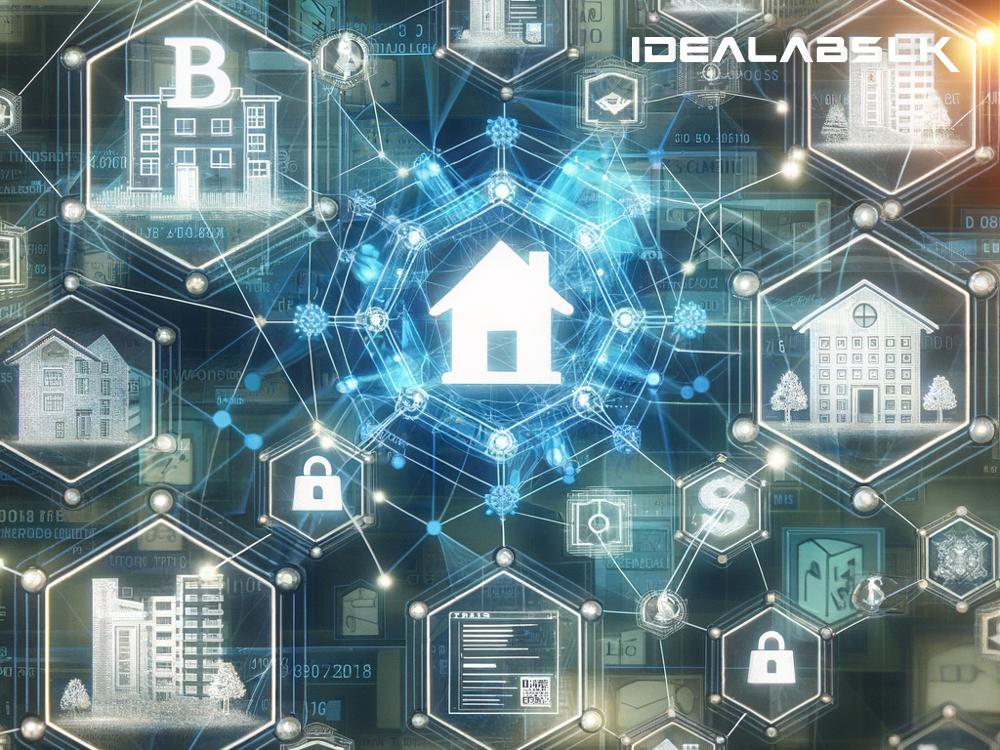Unlocking Trust in Real Estate: The Power of Blockchain
In the realm of buying and selling property, the question of trust always looms large. After all, how can you be sure that the person claiming to own a piece of property truly does? Or that the land you're investing in doesn't come with hidden disputes or liens? Traditionally, verifying real estate property ownership has been a laborious task, fraught with paperwork and reliant on centralized authorities. But what if there was a way to cut through this complexity, ensuring transparency and trust in property transactions? Enter blockchain, a technology you might recognize from the buzz around cryptocurrencies, which is now making waves in the real estate sector.
Simplifying the Complex: Blockchain at a Glance
Before delving into the wonders of blockchain for real estate, let's break down what blockchain really is. In simple terms, a blockchain is a digital ledger that's decentralized and distributed across multiple computers. This ledger records transactions in blocks, linked together in a chain (hence, blockchain). Each block is like a page of a ledger, filled with transaction details. The decentralized nature of blockchain means no single entity has control, making it a system built on trust and transparency.
One of blockchain's standout features is its immutability. Once a transaction is recorded, it cannot be altered or deleted, ensuring a tamper-proof record. This aspect is crucial when dealing with something as significant as property ownership.
The Real Estate Game Changer
So, how exactly does blockchain transform real estate transactions and ownership verification? Here's a look:
-
Transparent Transactions: With blockchain, every transaction related to a property is recorded in a manner that's secure and transparent. Whether it's the initial purchase, a lien placed on the property, or a transfer of ownership, each action is documented. This visibility ensures that everyone involved, from buyers to lenders, knows the property's history and current status.
-
Reduced Fraud: Property fraud can be a nightmare, with forgeries and false claims not being uncommon. Blockchain's immutable ledger means once ownership is recorded, it's set in stone, significantly reducing the risk of fraud. This security provides peace of mind for both buyers and sellers.
-
Efficiency and Speed: Traditional methods of verifying property ownership can be time-consuming, often involving trips to government offices and waiting for bureaucratic processes. Blockchain streamlines this, making the verification of ownership quick and painless. What once took days or weeks can now be accomplished in a matter of minutes.
-
Cost-Effectiveness: By cutting out the middlemen and reducing the need for extensive paperwork, blockchain can also make real estate transactions more cost-effective. This savings in time and money can make the market more accessible to a wider range of people.
-
Decentralization: The decentralized nature of blockchain means that property records aren't stored in a single, vulnerable location. This decentralization not only adds a layer of security but also means that ownership verification is not dependent on any single authority, reducing potential for corruption or errors.
Real-world Applications
While the integration of blockchain in real estate is still evolving, several initiatives and startups are pioneering this technology in the sector. For example, some companies are developing blockchain platforms that allow real estate transactions to be conducted entirely online, from listing to closing. Others are focusing on creating immutable property records, making it easy for anyone to verify ownership and transaction history.
Governments are also taking notice. Some jurisdictions are exploring how blockchain could be used to digitize land registries, aiming to increase efficiency and reduce the potential for land disputes.
Looking Ahead
As blockchain technology matures and more people understand its benefits, its adoption in the real estate sector is likely to grow. This isn't just about making transactions faster or cheaper – it's about making them fundamentally more trustworthy. By providing a clear, immutable record of property ownership, blockchain has the potential to transform real estate, making it more transparent, secure, and accessible for everyone involved.
In the end, whether you're a homeowner, investor, or just curious about the future of real estate, the message is clear: blockchain isn't just for digital currencies. It's a technology that could very well be the key to unlocking trust in property transactions, today and in the years to come.

